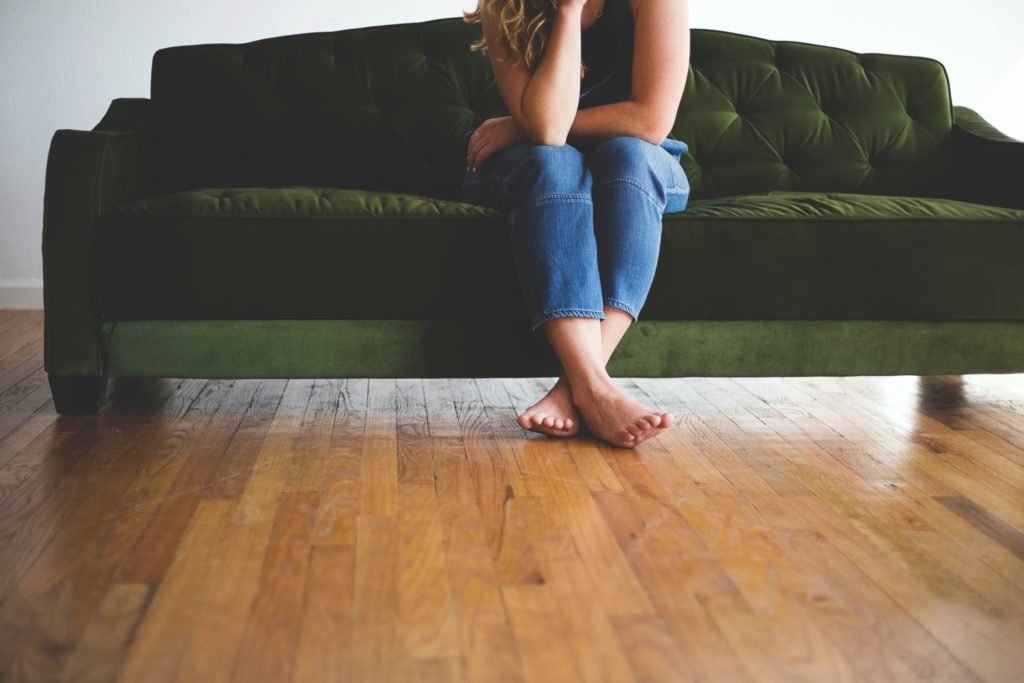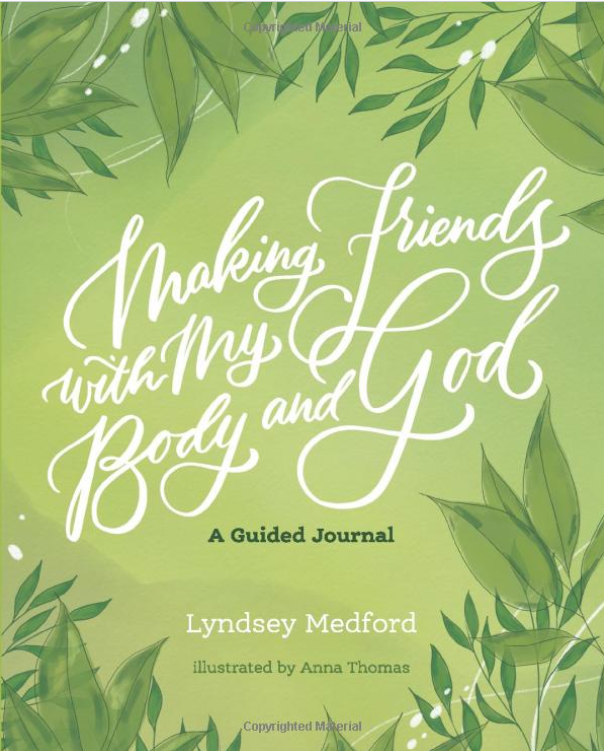
“The body of Christ, broken for you.”
My friend walks with a cane. The cane is a new thing, a hard thing. Sometimes she and I bond over chronic illness, navigating doctors’ offices, fatigue, needles, and food—but sometimes I can only say, “I know it hurts. I know it feels so lonely.”
When we’re told our value lies in what we produce, in living up to beauty norms, in our physical strength, our ability to be fun (or at least smile)—these bodies don’t feel quite as good as the ones we wish for.
“The body of Christ, broken for you.” I always cry through serving Communion anyway; my friend smiles thanks, and suddenly I feel the holy ground of this high-school cafeteria. Where else can I speak good news to us? Where else does a broken body have any meaning at all?
Here we do not have to grasp at slim hopes that pain can be transcended somehow; and we do not have to let pain swallow us whole. We three broken bodies—my friend, Jesus, and me—are allowed to simply be here, together, for one another. We touch, we share, we eat, because these are the things we were created for.
I don’t understand the problem of pain better than anybody else. I don’t pretend every moment of my friend’s suffering has some grand purpose that could possibly warrant such pain. All I know is that God does not watch us suffer from a pitying distance or even a parent’s remove. Instead, Christ chooses radical solidarity in the form of flesh, of birth, of growth, of betrayal, of brokenness, of utter loneliness, of death. Everything that has ever been desperately wrong, every violation and every wound, has torn open God. Something about this creation is too precious to abandon, and God descends to the depths to rescue all, all, all—every last atom and cell of it.
Somehow God is not content to cheat death by splitting us from the body that dies; instead God redeems us whole by walking the way of dirt and pain, breath and laughter. In a world where sin’s divisions reach all the way down to alienating us from our own bodies, the good news is that the incarnation and resurrection are stitching us back together.
My sick body is still good. She is still me. She is still wise and strong.
My female body—to which others believe they are entitled—is still my home. She is still my power.
Our stressed and strained bodies are waiting for us to return to them, to trust God’s word that what is wounded can also be good. We’ve spent so long judging our bodies from other perspectives, we’ve forgotten how to inhabit our own selves. God with us is teaching us to be with, to be present, so we can reclaim this matter that matters, and connect more deeply to the wounded world around.
Many days I cannot see, only try to believe, that my broken-bodied self counts as priceless treasure—not junk heap—to this hell-bent, rescuing God. My childhood God who’s interested only in innocent, immortal souls still seems more sane to me.
Then again—when the leaves of the backyard pecan tree jostle to greet the dappled afternoon sun and the same breeze stirs my hair; when a sun-warm tomato pops in my mouth and satisfies down to my toes; when a piece of bread is pressed from hand to hand and for one moment we are three bodies in one—I think I see it. How God could want more than angels, more than words, more than perfection, and throw their lot in with some dusty, beautiful, bodily creatures belonging to a fragile little planet.
Because all it takes is to gather in a high school cafeteria and share little bits of bread to be love to each other, and to remember that this moment is all there is: being present with the crusty crumbs and the warmth of hands and the sound of another’s name, and the Love who is present when the stuff of life is freely given and received.
So maybe if this body in this moment is precious to God, I can allow it to matter to me. Maybe I can finally choose the joy and the right and the responsibility to care for myself, to pursue creativity, to stretch and dance, to encounter the natural world and meet others in relationship with my whole heart, mind, and strength—choose the neglected wisdom and the buried beauty of these muscles, nerves, and bones. What if this is all untapped light, something the world doesn’t want us to see? What if the strength and courage and creativity we’ve been searching for have been in our breath, waiting for us to simply open to them this whole time?
Bodies and all, we are more than pain. We are more than perfect. We are worth breaking for.
P.S. Today is the day! My book of essays, practices, and journaling questions is officially here! AND We’ll have a Facebook group discussion with me and Anna for everyone who buys theirs by tomorrow (June 26). Grab your copy, then head over to the group and ask to join!
So many thanks to the launch team, my family, and everyone who’s ever sent an encouraging note or started a conversation based on something I’ve written. I know it sounds cheesy, but writing is a vocation to lonely work in order to make others feel less alone. As long as people keep letting me know I’m accomplishing that goal, I’ll keep writing and sharing. You make this work worth doing!
Now go get your book, love, so we can dive into it together. See you in the group!

Leave a Reply